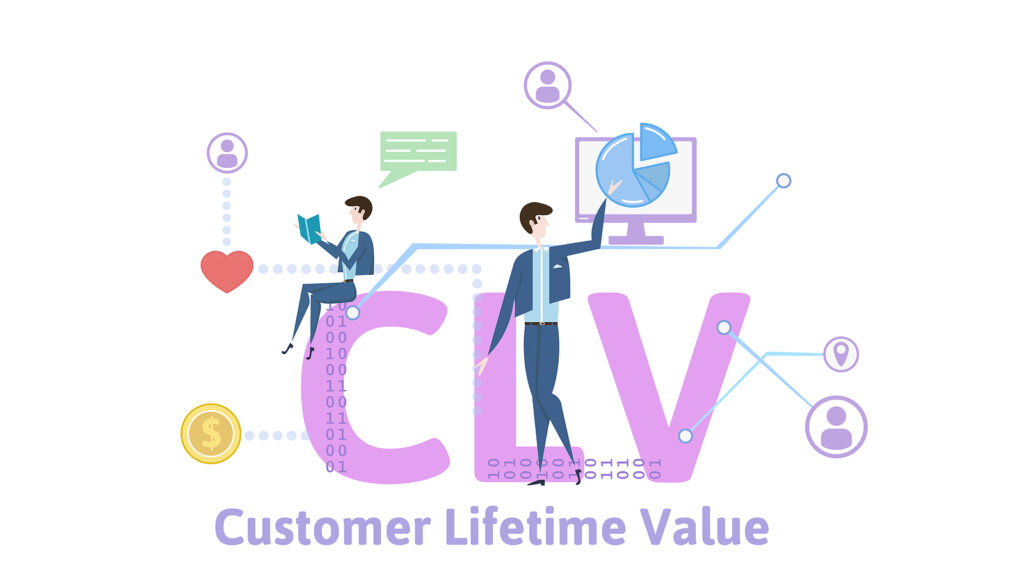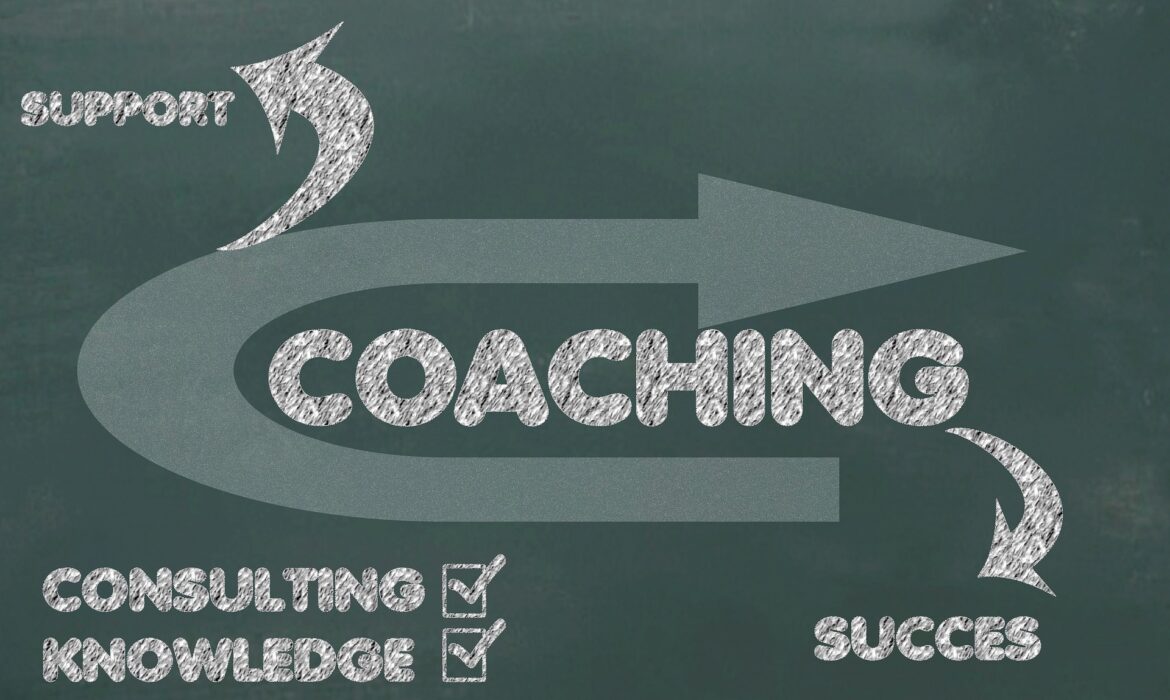The Impact of Testimonials for Digital Marketing
The authenticity and trust connected with your brand are more important in the digital era than years ago. In fields like home remodelling, where choices significantly affect personal life and income, this is especially true. Testimonials for digital marketing are powerful instruments that can greatly improve the legitimacy and impact of your brand on customer behaviour, not only as a means of feedback.
This blog post will look at the convincing influence of including testimonials in digital marketing plans and offer practical advice on how best to use them to increase the online presence of your brand.
Why Testimonials Are Crucial for Digital Marketing
Building Trust with Potential Customers
Testimonials are like strong recommendations, greatly influencing trust, which is especially important in online situations where direct contacts are absent. In fields like home improvement, where choices greatly impact personal spaces and budgets, prospective customers want guarantees before interaction. Giving good comments from happy consumers convinces future clients that your company is reliable and dedicated to excellence.
Enhancing Brand Credibility
Apart from cultivating confidence, testimonials support the reputation of your brand. Often dubious of marketing claims, modern buyers search for actual proof of a company’s dependability. Testimonials offer this evidence, showing the practical success of your goods or services. Their evidence of past performance and client happiness supports your marketing messages.
Influencing Consumer Behaviour
Good use of testimonials in digital marketing can change customer behaviour noticeably. Seeing good comments from other clients can help prospective customers connect more with your company, boosting not only interaction but also conversion rates. Testimonials help others to be real, thereby supporting good impressions and guiding decisions that support your brand. Therefore, using testimonies is rather helpful in helping potential clients during the conversion process.
Effective Ways to Use Testimonials in Digital Marketing
Integrating Testimonials on Your Website
Often, the first point of contact for possible clients is your website. Displaying testimonies on your homepage or particular product page can grab visitors’ attention right away and establish trust. Make a special testimonial page or include them in a slider on your main page to make them easily visible and interesting. This approach guarantees that the good experiences of former clients take the front stage, therefore confirming the reputation of your business from the beginning.
Leveraging Testimonials in Social Media
Social media channels offer a vibrant forum for sharing testimony. Regular postings, including client comments—especially in video or picture form—can greatly increase involvement. Think about starting a hashtag campaign to inspire consumers to submit their tales, therefore producing not only material but also a community around your business. These real voices may greatly increase the legitimacy and reach of your brand on social media.

Testimonials in Email Marketing
Including quotes in your email campaigns will help to personalise your communications and increase open rates. Whether it be a strong quotation in a promotional email or a customer narrative in a monthly newsletter, testimonials confirm the value you offer to your clients. Emphasising these testimonies in emails convinces recipients of the calibre and dependability of your offering, therefore enhancing click-through rates and conversion potential.
Every one of these approaches uses testimonials for digital marketing to build credibility, trust, and customer involvement, increasing traffic and conversions for your company.
Collecting Quality Testimonials
Asking for Feedback
Getting strong testimonials depends on aggressively asking your clients for comments. Once a service or product is delivered, this should be a component of your regular operating process. Timing is everything; ask for a testimonial while the customer’s memory of the great event is still fresh. Your chances of getting a testimonial will be much higher if you give them a straightforward method to submit comments—a follow-up email including a direct link to a review page.
Guiding Customer Responses
Although testimonials should naturally represent honest consumer impressions, coaching your customers with particular questions will assist you in gathering the most relevant data. Inquire clients to provide particular details of their experience, like the issue they had, how your good or service solved it, and what advantages they saw. This strategy guarantees that the comments are pertinent and cover important areas of your company that potential clients could be interested in, in addition to producing more thorough testimonials.
Offering Incentives
Although testimonials should never be purchased, giving a modest incentive for comments can help consumers spend some time sharing their experiences. As a thank you for their time and effort, think about giving a discount on your next purchases or contest participation. Maintaining the integrity and authenticity of the gathered testimonials, make sure consumers understand that the incentive is for their comments, regardless of their favourable or negative nature.
By using these techniques, you can greatly increase the volume and quality of testimonies gathered, therefore arming you with strong instruments for your online marketing campaigns.
Enhancing SEO with Testimonials
Keywords in Testimonials
Including naturally occurring, relevant keyword-based testimonies can help your SEO efforts much more effectively. Encourage consumers to specifically highlight particular items or services and their detailed experiences, therefore improving the ranking of your website for relevant keywords. This approach not only increases natural search visibility but also makes the testimonials more real and relevant to possible consumers looking for like-minded solutions.
Regular Updates with Fresh Content
The frequent addition of fresh testimonials to your website helps to keep your material interesting for search engines, as well as for users. Search engines prefer websites with regularly updated, fresh content since it shows that the site is relevant and active. Including fresh success stories in your blog or a rolling testimonial on the homepage will help keep visitors’ attention and, over time, boost SEO.
Local SEO Enhancement
Local SEO is absolutely important for companies in home improvement. Testimonials referencing particular sites or local service experiences will help your profile show up in local search results. Particularly on service-specific pages and in local company listings, make sure your website features such testimonials. This will enable possible clients in your vicinity to locate you more quickly and feel more confident in selecting your offerings above those of rivals.
Through careful use of testimonials for digital marketing in these respects, you can improve your online profile and draw more focused traffic to your website, increasing conversion rates and consistent business growth.
Using testimonials for digital marketing is a calculated method to build authenticity and trust that appeals to possible consumers, not only about compiling endorsements. Through email marketing and the smart integration of client testimonials on several digital channels—from your website to social media—you can greatly increase the legitimacy and visibility of your business. Accept the ability of testimonials to turn happy consumers into your most effective champions, thereby promoting more involvement and sales. Start using these techniques now and see how much your digital marketing success improves.
Leveraging Business Development Metrics for Strategic Growth
Managing the complexity of contemporary companies calls for a keen awareness of performance metrics that count. For companies trying to monitor development, refine plans, and steer towards long-term success, business development metrics are important instruments. Methodically studying these indicators can help businesses uncover insights to improve their operations and make strategic choices, increasing their competitiveness and growth.
This guide will address key indicators for efficient corporate monitoring and go over doable strategies to use these insights to propel significant corporate development.
Essential Business Development Metrics to Track
Lead Conversion Rates
The effectiveness of your sales and marketing plans depends heavily on lead conversion rates. They draw attention to the proportion of prospective clients who, upon interaction with your marketing initiatives, turn out to be real consumers. Usually, better conversion rates indicate that your company is resonating with its target market rather successfully. Through close monitoring of this indicator, companies can identify areas needing optimisation and successful strategies, helping them to improve general sales effectiveness using targeted approaches.
Customer Acquisition Cost (CAC)
The Customer Acquisition Cost (CAC) is critical for evaluating the financial efficiency of gaining new customers. It entails computing all marketing and sales-related expenses split by client acquisition throughout the same period. Lower CAC denotes a more affordable approach, which might greatly increase profitability. Tracking CAC helps businesses decide where to allocate their marketing funds and how best to simplify outreach initiatives for optimal use of resources.
Customer Lifetime Value (CLV)
A Customer’s Lifetime Value (CLV) approximates the whole income a company might hope for from one customer across their relationship. This statistic enables businesses to pinpoint the most profitable consumer groups and adjust their marketing plans. Knowing CLV helps companies adapt service offers and justify expenditure on customer retention projects, therefore ensuring that resources go towards the most important long-term client connections.

Sales Growth
Any company hoping to grow has to keep an eye on sales development. This statistic shows whether sales of a corporation rise or fall over a specified period, providing information on general company performance and sales strategy success. While any reductions could point to problems needing quick correction, consistent sales growth can suggest market acceptability and operational success. Good tracking of sales development enables businesses to quickly modify their strategies to maintain a good trend of growth.
Market Penetration
Market penetration reflects the portion of a possible market a company has seized with its product or service. Understanding the position of a company relative to the whole accessible market and evaluating the success of market strategies depend on this statistic. Greater market penetration denotes a strong presence and maybe a competitive advantage. This statistic allows companies to evaluate the performance of their market strategy and investigate chances for an increase in their market share.
Practical Strategies for Using Metrics to Drive Business Development
Setting and Reviewing Goals
Strategic planning depends on well-defined, quantifiable targets grounded in pertinent business development indicators. Defining particular goals helps companies better concentrate their resources and efforts. Reviewing these objectives regularly guarantees the company stays nimble and responsive by allowing revisions depending on internal changes or market developments. This continuous process keeps the business headed towards its long-term goals clearly and precisely and helps synchronise team activities.
Forecasting
Utilising historical data from business development metrics to forecast future trends is crucial for proactive strategic planning. This approach helps businesses effectively manage resources, predict consumer tastes, and adapt to the changing needs of the market. Good forecasting guarantees that businesses stay competitive and are ready for future difficulties, therefore drastically lowering the risks related to corporate growth and product introductions.
Aligning Teams
Coherent development depends on every department knowing how their activities affect the general measures of company performance. Frequent training courses and updates on these indicators can enable team efforts towards shared corporate goals to be in line. This alignment helps to improve efficiency and effectiveness generally, therefore supporting a stronger bottom line using a cohesive approach to corporate difficulties.
Continuous Improvement
Using consistent study of company development indicators, a culture of continuous improvement helps to provide improved processes and strategic results. Using these indicators, companies can find areas for development and effective methods, thereby applying knowledge gained to the next projects. This iterative approach not only improves present methods but also stimulates creativity, enabling companies to keep ahead in cutthroat industries and change with the times with respect to industry norms.
Integrating Business Development Metrics Across Business Functions
Cross-Functional Collaboration
Good integration of company growth measurements calls for cooperation among several divisions. Teams can coordinate their efforts towards shared business goals by using critical data metrics, including customer conversion rates or market penetration levels. For example, whereas product development can use consumer feedback measures to influence innovation, marketing can match its campaigns to directly support sales targets. Apart from simplifying procedures, this cross-functional cooperation improves performance and responsibility everywhere.
Technology and Tools for Metrics Integration
Harnessing the full potential of business development measurements depends on the appropriate technology. Data accuracy and accessibility can be greatly enhanced with tools including integrated analytics platforms, sophisticated CRM systems, and automated reporting applications. Companies should make investments in technologies that make real-time data analysis possible, therefore enabling faster reactions to operational requirements and market trends. These instruments can also provide a more thorough understanding of the measures, therefore enabling businesses to better foresee future developments and grasp difficult patterns.
Training and empowerment
A data-driven company culture depends critically on empowering staff members to grasp and use business development KPIs. Frequent training courses help staff members become familiar with the KPIs and show their applicability for every job. Companies should also inspire groups to apply these measures during their decision-making process. Not only access to data but also the capacity to confidently evaluate and act on it empowers one and can result in more creative ideas and changes in corporate operations.
Future-Proofing with Metrics
Maintaining competitiveness in an always-shifting corporate environment requires constant updating and adaptation of your KPIs. Companies must routinely check their metric systems to make sure they stay pertinent and fit for their present corporate goals and industry conditions. As new trends develop and corporate models change, this future-proofing approach calls for not only technology changes but also changing the measures themselves. Companies that keep a flexible attitude towards business growth measures will be able to keep their competitive edge and adjust more naturally to upcoming difficulties.
In summary, including business development measures in several corporate departments improves operational effectiveness and strategic alignment. Companies can maximise their development potential by encouraging cross-functional cooperation, using the appropriate technology tools, empowering staff members, and always adjusting measures to fit the evolving corporate environment.
This all-encompassing strategy not only maximises present procedures but also helps companies foresee and handle upcoming difficulties. Equipped with a strong metrics-driven plan, businesses are ready to negotiate complexity and flourish in the competitive market.
Why UK Business Coaching is Great for Traditional Marketing
Business sustainability and expansion in the dynamic market of today depend on combining conventional marketing with innovative ideas. Although digital marketing rules the conversation most of the time, strong, enduring consumer relationships are created in great part by traditional approaches. This is when UK business coaching becomes so helpful.
Expert UK trainers enable companies to revive their conventional marketing initiatives, guaranteeing their continued relevance and impact. UK business coaching offers companies the means to succeed in both spheres by combining age-old methods with modern insights, thereby maintaining their competitiveness and adaptability in a market that is fast-changing.
Bridging Old and New
One of the main advantages of UK business coaching is its ability to elegantly combine conventional and digital marketing approaches. UK business coaches are fully aware of both worlds. Often lacking from internally focused marketing teams, they offer a complete approach. Deep roots in knowledge of human behaviour and local idiosyncrasies abound in traditional marketing, which, when deftly combined with modern tools, may greatly increase reach and involvement.
For example, even if a digital campaign might draw attention on social media channels, in-person networking events help to confirm that initial digital interaction into long-term commercial partnerships is supported. By pointing out the advantages of every strategy and guiding them on how they could interact, UK business coaches help to promote this cross-pollination.
Coaches also assist companies in negotiating the complexity of merging several approaches. They provide ideas on how digital calls to action may revive classic print advertising or how online analytics and data might improve client segmentation in direct mail campaigns. This deliberate integration guarantees not only more thorough but also more successful marketing initiatives, thereby improving brand awareness and client loyalty. Using this direction, UK business coaching helps businesses innovate for the future while using their legacy.
Customised Strategy Development
A pillar of UK business coaching is the creation of customised marketing plans that complement the particular goals and features of every organisation. Conventional marketing is not a one-size-fits-all solution; it needs careful tailoring to properly appeal to the target demographic. UK business coaches are particularly adept in developing these customised plans, making sure that the conventional components—print media, television advertising, and community outreach—are most in line with corporate objectives and consumer expectations.
For advertising, for instance, a coach might assist a healthcare provider in determining the best local newspapers depending on demographic analysis and historical performance records. They might also help a solar energy company create an interesting community event that not only increases brand awareness but also informs the public on the advantages of environmentally friendly energy sources.
These customised plans consider not just the marketing objectives but also the more general corporate goals, including market growth, client retention, and brand loyalty. By concentrating on these unique solutions, UK business coaching enables businesses to make a more noticeable marketing impact. The strategy not only improves present campaign performance but also increases the whole market position of the brand, guaranteeing sustainability and development in the competitive corporate environment.
Enhanced Creativity and Innovation
Innovating ideas and originality into conventional marketing plans is greatly enhanced by UK business coaching. Coaches push companies to question accepted wisdom and think creatively, therefore fostering original concepts and marketing. Fresh approaches to long-standing marketing that might have grown monotonous or predictable over time depend critically on this creative contribution.
A business coach might advise businesses depending on conventional media like print ads or billboards with augmented reality components to bring these media into the digital age, therefore providing a more interactive experience for the audience. On the other hand, they might advise using narrative devices in direct mail campaigns to turn everyday marketing tools into gripping stories that grab consumers’ hearts and brains.
Furthermore, UK business coaches inspire ongoing innovation using an experimental culture inside marketing teams. They could help team members take artistic chances without regard to failure, therefore empowering them and generating fresh ideas at seminars or brainstorming sessions. This strategy not only revitalises current campaigns but also guarantees that conventional marketing techniques develop alongside digital innovations, preserving their efficacy and involvement levels in a market that is always changing.
Accountability and Measurement
Particularly in the field of conventional marketing, UK business coaching highly stresses responsibility and the accurate assessment of marketing activities. Coaches assist companies in developing precise, quantifiable goals for every campaign and include strong tracking tools to keep an eye on these aims. This methodical strategy guarantees that every marketing action is result-oriented and goal-oriented, therefore optimising the return on investment.
Coach performance metrics include customer response rates, coupon redemption counts, or foot traffic measurements that might be used for conventional marketing projects, including newspaper advertising or local sponsorships. These indicators give real proof of marketing success and insightful analysis of consumer preferences and behaviour.

Moreover, UK business coaches help to improve these measuring strategies over time. Analysing the gathered data helps them spot trends and patterns that guide the next marketing decisions, guaranteeing that tactics stay flexible and sensitive to the dynamics of the market. This continuous process of assessment and modification not only improves the instantaneous success of conventional marketing initiatives but also supports long-term strategic planning.
Using this strict emphasis on responsibility and measurement, UK business coaching enables companies to not only carry out their marketing goals but also comprehend and enhance them constantly, therefore attaining continual growth and success.
Skills Development
UK business coaching not only revitalises marketing tactics but also emphasises improving the abilities of marketing teams, especially in the areas important for effective conventional marketing. Coach value can be particularly great in areas such as effective communication, strong copywriting, compelling public speaking, and smart networking.
To help in these areas, coaches sometimes lead focused seminars and training courses. They might, for example, plan a course on creating interesting and strong sales presentations or offer one-on-one coaching to improve a team member’s public speaking skills at business conferences. This practical training guarantees that staff members are not only competent in applying conventional marketing strategies but also very good at them, therefore improving the general quality of the marketing initiatives.
Furthermore, UK business coaching promotes a constant learning and development culture. Teams can incorporate creative ideas and tools into their strategies by keeping current with the newest marketing trends and technologies, thereby enhancing their campaigns, even those usually thought outside the purview of traditional marketing.
This commitment to skill development pays off in terms of a more capable, confident, and flexible marketing staff ready to meet the demands of both conventional and digital marketing environments. Using these initiatives, UK business coaching guarantees that companies are not only following industry trends but also defining the benchmarks for excellence.
Building Sustainable Relationships
In conventional marketing, success can be influenced by personal ties. UK business coaching stresses the need to create and preserve strong relationships with suppliers, partners, and community leaders, in addition to consumers. Coaches help companies negotiate the complex process of developing these relationships, improving brand loyalty, and building a credible reputation in the market.
A business coach could suggest partnerships that might increase brand awareness and confidence or help with networking plans that allow businesses to interact more closely with their surrounding community. They might, for example, assist in coordinated campaigns between complementary companies, therefore generating a synergy that benefits both of them and increases customer interest.
Furthermore, UK business coaching enables companies to apply CRM techniques, which are essential for the long-term retention of consumers gained via conventional marketing methods. Businesses may guarantee constant engagement and satisfaction by methodically controlling these relationships; these are essential for repeat business and referrals.
The emphasis on sustainable relationship development not only strengthens the foundation of a firm but also generates a network of supporters able to drive it ahead. By using the ageless value of personal relationships, UK business coaching helps companies flourish in a climate of ever-increasing competitiveness through these strategic initiatives. In summary, even if digital marketing still rules the industry, conventional marketing is still a powerful instrument for developing strong brand relationships.
UK business coaching is essential in enabling companies to negotiate and maximise these conventional approaches, therefore ensuring their relevance and impact. UK business coaching prepares businesses to succeed in a multifarious marketing environment by providing strategies that mix old and new, encouraging innovation, improving skills, and prioritising relationship building. This helps to drive sustainable development and competitive advantage in both local and worldwide markets.
How a UK Business Coach Can Expand Your Home Improvement Company
In the competitive home improvement business, achieving notable expansion calls for more than just good workmanship and diligence. It requires a proactive attitude towards consumer wants and market trends, strategic foresight, and deft management techniques. This is exactly where a UK business coach becomes vital since they provide the tools and knowledge required to turn your company idea into a real-world possibility. Working with a competent UK business coach prepares you to improve your operational methods and plans, enabling success and sustainable development.
Sharpening Your Strategic Focus
Working with a UK business coach can transform how you see and run your home improvement company. Many entrepreneurs become engrossed in daily tasks and lose sight of the larger picture required for long-term development. A business coach encourages you to concentrate on strategic goals instead of only tactical activities, therefore helping to clarify your company objectives.
Establishing what success looks like for your company—be it expanding into new areas, building your customer base, or enhancing service offerings—helps you achieve this clarity. Your coach will walk you through the process of establishing both reasonable and ambitious targets. If your first goal is to enter new geographical areas, for example, the coach will assist you in analysing the market dynamics of these new locations, evaluating the competition, and spotting your possible clientele.
Your company coach will also assist you in creating a customised action plan fit for these strategic goals. This method calls for allocating resources effectively and establishing deadlines for every stage of your plan. By having a strong concentration on strategic planning and execution, you guarantee that every effort and investment supports the expansion of your organisation instead of only helping it to survive.
Building a Strong Brand Identity
Developing a strong brand identity is vital, and a UK business coach can help create a special place for your company by guiding you in this process. This covers your company’s beliefs, goals, and the promises you offer to your clients, thereby transcending mere logo design.
First, your coach will help define these fundamental components that appeal to your target market. This could include stressing your unique workmanship, dedication to sustainability, or first-rate customer service. Every element of your brand identity should capture the traits that distinguish you from rivals.
The coach will then help you properly convey your identity through all of your marketing outlets. Consistency is everything—on your website, on social media, or in direct client contacts. If your brand is based on excellent customer service, for example, your coach will ensure that this is expressed in your advertising and experienced by your consumers through every touchpoint.
A UK business coach can also offer advice on using your brand identity to create fresh business prospects and strengthen loyalty among current clients. By building a reputable, identifiable brand in the home improvement industry, this calculated approach to branding not only improves your market presence but also helps long-term business success.

Leveraging Digital Marketing
Any home improvement company trying to grow nowadays depends on a strong web presence. Your digital marketing plans will be much improved by a UK business coach, who will also guarantee that you properly interact with your target market and turn leads into devoted consumers.
Your coach will assist you in grasping and applying fundamental online marketing methods, including search engine optimisation (SEO), to raise your profile on search engines. This could mean optimising your website with pertinent keywords linked to house remodelling, roofing, and other services you provide, therefore guaranteeing that possible consumers find you first when looking for home improvement solutions in your area.
Another vital area where a UK business coach can provide value is social media marketing. Showing before-and-after pictures of your initiatives would be ideal on sites like Instagram and Pinterest. Your coach can help you produce interesting material that not only emphasises the excellence of your work but also promotes connection and sharing, therefore extending your digital presence.
Moreover, local SEO techniques and focused advertising are meant to reach particular groups within given areas, so your marketing activities become more exact and successful. From selecting the correct platforms to spending your marketing budget sensibly, your UK business coach will guide you through this complexity. This customised strategy guarantees that every marketing dollar you spend directly helps your company flourish.
Developing a Competitive Edge
Finding and honing your competitive edge can be greatly aided by working with a UK business coach. This procedure entails a thorough investigation of what distinguishes your offerings and the use of these special features to land a better place on the market.
Your coach will go over rivals in great detail to help you see their advantages and disadvantages. This realisation enables you to create plans based on market gaps or areas of underperformance by your rivals. For instance, if your rivals lack environmentally friendly choices for house improvements, you could have a chance to specialise and rule this market.
A UK business coach also helps you improve your service offering to surpass sector norms. Whether using new technology, process simplification, or creative customer service strategies, your coach will assist you in putting ideas into reality that result in exceptional client experiences and thereby strengthen your reputation.
Furthermore, strategic positioning using client relationship management and focused marketing helps to confirm your reputation in the field. Your coach will assist in developing messages that appeal to your target market, therefore guaranteeing that your marketing initiatives are not only visible but also successful in drawing in and keeping customers. This calculated approach not only distinguishes your company but also creates a basis for long-term success and expansion in the cutthroat home improvement scene.
Navigating Market Expansion
Investigating new geographical locations becomes a calculated move towards more expansion as your home improvement company develops and your local market position is confirmed. Expert advice on negotiating the complexity of market expansion can come from a UK business coach, so guaranteeing your push into new areas is both strategic and successful.
Comprehensive market research to grasp the demographic, economic, and cultural traits of the new area is the initial phase of market expansion. Your coach will help you compile information to evaluate demand for your products, spot possible rivals, and grasp local laws that can compromise your company’s operations.
With a strong awareness of the new market, your company coach will assist you in creating a customised entrance plan. This could involve localised marketing initiatives tailored especially for the regional audience, joint ventures with nearby companies, or even modification of your service offers to fit local needs and tastes.
Your coach will also walk you through the practical details of growth, like operational scaling, staffing, and supply chain changes. They will also guarantee that you have backup plans in place, thereby helping you control the risks involved in joining a new market.
Having a UK business coach helps you negotiate market expansion which not only increases your chances of successful development but also reduces the hazards involved in such endeavours. Strategic entry into new markets will help you greatly increase the client base and improve the general market situation of your company.
Business coaching provides a methodical and knowledgeable way for your home improvement company to grow. From honing strategic focus and creating a strong brand identity to using digital marketing and acquiring a competitive edge, every action is meant to build on the next, hence producing effective market expansion. Accepting the transforming power of a UK business coach will help you make sure your company not only grows but also makes a strong impression in the cutthroat home improvement sector of the UK.
The Role of Virtual Events in Connecting with Solar Energy Stakeholders
Virtual events have evolved into a basic instrument for sectors hoping to interact with a larger audience in the digital age of today. These events have a special value for the solar energy industry since they bring together global stakeholders in a dynamic, participatory setting. Online trade exhibits, webinars, and virtual conferences are just a few of the ways these venues provide special chances for networking, information sharing, and showcasing the newest solar technology.
This blog article explores the advantages and tactical strategies of promoting relationships and participation among solar energy stakeholders through virtual events.
Advantages of Virtual Events in the Solar Industry
With so many benefits over conventional in-person gatherings, virtual events have completely changed the way solar energy stakeholders interact and share ideas. The most obvious benefit is by far accessibility. People from all over the world can take part in these events without needing to travel, leading to participation on a global scale. It cannot be understated the potential that this unleashes for companies. No longer are businesses restricted to participation from local stakeholders.
Virtual events are also far cheaper than in-person events. Smaller-sized solar companies can save on the high costs usually related to site rents, logistics, and travel.
Furthermore, better data collection is made possible by the digital nature of these occasions. Through the advanced analytics capabilities offered by virtual platforms, organisers can monitor attendance, participation rates, and engagement levels. The understanding of guests’ interests and behaviours allows businesses to avoid any previous mistakes, leading to future events being more customised and successful.
Maximising these benefits makes virtual events effective instruments for establishing and fortifying the worldwide community of solar energy stakeholders.
Strategies for Hosting Successful Virtual Events
Virtual events need careful organisation and smart execution to be able to successfully involve solar energy stakeholders. A solar business may improve the calibre and impact of online meetings by using the following specific tactics:
Engaging Content Creation
A virtual event’s foundation is always interesting content. The main goal of solar companies should be to organise talks and presentations that motivate as well as educate attendees. Interactive components like live polls, Q&A sessions, and virtual tours of solar facilities can greatly increase viewer involvement. Panels including professionals from several areas of the solar sector can offer a range of viewpoints and spark thought-provoking debates, therefore keeping the material interesting and dynamic.
Robust Technical Setup
The event is virtual; hence, making sure everything runs smoothly from a technical standpoint is essential. This means choosing a trustworthy streaming service, practicing technical aspects well before the event, and having IT help on hand to quickly fix any problems. Ensuring excellent audio and visual components will help to keep participants interested and avoid exhaustion during the session. Giving attendees precise directions on how to access the event and make use of any interactive technologies is also crucial to making sure they can participate completely.
Effective Promotion
It takes strong promotion plans to bring together a wide range of solar energy stakeholders. Reach can be increased by combining with other industry participants, email campaigns, social media, and industry forums in multi-channel marketing. Regular updates and the early start of promotional activities might build up to guarantee a greater attendance rate. Giving important stakeholders and possible partners individualised invitations can also help them feel appreciated and raise the possibility of their involvement.

Facilitating Networking Opportunities
A big problem in virtual environments is replicating the networking opportunities of in-person gatherings. Features that facilitate participant contacts, like breakout rooms for more intimate group talks, virtual business card exchanges, and direct messaging capabilities, should be included in virtual systems. Making time for specific networking events throughout the event can also motivate attendees to engage with one another and build deep relationships that could result in joint ventures, partnerships, or the acquisition of new clients.
Follow-Up and Feedback
Communicating with attendees in the aftermath of the event is essential. Retaining the audience can be accomplished by sending thank-you emails, releasing session recordings, and asking for input through surveys. For evaluating the event’s performance and pinpointing areas that need work in the next virtual meetings, this input is priceless.
Solar enterprises can create powerful virtual events that improve knowledge sharing among solar energy stakeholders and fortify the cohesiveness and cooperative spirit of the community by combining these all-encompassing approaches. Using this strategy guarantees that virtual events function as efficient venues for promoting debates and developments in the solar sector.
Finally, virtual events are essential venues for bringing together solar energy players all around the globe. Through the use of the advantages of worldwide accessibility, affordability, and thorough analytics, these virtual events overcome conventional obstacles and create a rich atmosphere for cooperation and knowledge exchange. Improving these encounters requires efficient content, technical support, promotion, and networking plans. As digital interaction keeps rising, virtual events will be more and more necessary to fortify ties between solar energy stakeholders and advance innovation in the industry.
How to Leverage Solar Market Data
Leveraging market data has become a vital tactic in the rapidly changing solar sector for promoting expansion and improving market penetration. With its capacity to process enormous volumes of data from many sources, solar market data offers companies previously unheard-of insights into consumer behaviour, market trends, and operational effectiveness.
This article looks at how solar companies may use market data’s revolutionary potential to improve their targeting tactics, customise their products, and streamline their operations, which will increase solar panel sales and give them a competitive advantage in the renewable energy industry.
Understanding Solar Market Data
Solar market data is a broad category of data gathered from many sources, including customer interaction records, sensor data from solar panels, and satellite images. Forming a thorough knowledge of the macro and micro-level dynamics of the solar market depends on this information. Satellite photos, for example, can be used to evaluate solar irradiance in various regions, which can affect where businesses should concentrate their sales activities.
Furthermore, real-time information on energy production and consumption trends is available via smart devices linked to solar systems. This information improves knowledge of the product’s performance and guides maintenance plans and customer care tactics. Including past purchase data with consumer demographics can also highlight patterns and preferences, which can help to focus and optimise marketing initiatives.
Making use of this wealth of data helps solar companies forecast market trends, make wise judgements, and customise their plans to satisfy particular client needs, which in a cutthroat industry increases efficiency and profitability.
Enhancing Customer Targeting
Solar market data allows solar companies to go from broad, generic marketing plans to focused and customised campaign strategies. Through the analysis of large databases, companies can identify the demographics with greater propensities for solar adoption. Beyond demographic and geographic division, this exact targeting incorporates behavioural analytics such as energy consumption, social media interactions, and buying habits.
For example, data analytics can find homes that use a lot of electricity and might be more likely to look into solar options to lower their energy costs. Comparably, organisations may find out which client groups respond better to direct mail or community events and which are more open to digital marketing initiatives by studying online behaviour and engagement.
This degree of detail raises the success of marketing initiatives by guaranteeing that the appropriate messages get to the appropriate people and by improving the effectiveness of resource distribution. Companies may therefore appeal directly to the needs and interests of selected target groups, increasing conversion rates, lowering marketing expenses, and eventually increasing solar panel sales.
Optimising Product and Service Offerings
A deeper awareness of consumer wants and local market conditions made possible by solar market data enables solar companies to customise their offerings. Companies can adapt their products to the unique requirements of various segments by examining trends in customer behaviour and environmental data. Data insights, for instance, would suggest that larger family sizes or higher energy consumption rates in particular areas drive a greater demand for high-capacity solar systems, which would direct businesses to concentrate their product development and marketing efforts in such areas.

Incorporating real-time performance data from installed solar panels also makes it possible for companies to provide preventative maintenance. Businesses that can identify problems before they become serious ones will have happier and more trusting customers. This also presents chances to upsell more sophisticated features or more recent models based on particular usage statistics and consumer input.
Market data allows solar businesses to improve their service models to deliver quick, individualised solutions that satisfy customers, in addition to guaranteeing that their product offers are exactly in line with market demand. This calculated move increases general competitiveness in the solar industry in addition to enhancing customer connections.
Predictive Analytics for Strategic Planning
By using predictive analytics, solar businesses may forecast future market trends and client demands and turn raw data into useful insights. Because of this predictive ability, companies may plan product introductions, marketing campaigns, and resource allocation based on anticipated demand and remain ahead of the competition.
Companies can forecast times when solar energy usage will peak and possible rises in consumer demand, for instance, by examining past weather data and energy consumption trends. This makes stock changes and pre-emptive marketing plans possible to satisfy expected demand. Predictive models may also pinpoint areas that will probably embrace solar technology, which helps businesses concentrate their sales efforts and successfully enter new markets.
Predictive analytics can also improve decision-making for financial planning, operational changes, and inventory control. Anticipating changes in the solar industry allows businesses to streamline their processes, cut expenses, and enhance service quality, thereby positioning themselves for future possibilities and difficulties. In the fast-paced solar industry, this proactive strategy not only increases efficiency but also supports long-term corporate expansion.
Improving Operational Efficiencies
Through the simplification of many business procedures, from installation scheduling to customer support, solar market data analytics greatly improve operational efficiencies inside solar enterprises. Correct data allows businesses to maximise site assessment and installation routing, guaranteeing effective technician deployment and reduced client wait times. Faster project turnaround times and higher client satisfaction follow from this logistical optimisation.
Companies can also more effectively manage their maintenance plans by analysing performance data from current solar installations. Predictive maintenance can prolong the life of solar installations and avoid expensive breakdowns when it is based on information about environmental conditions and equipment performance. By taking this proactive stance, maintenance expenses are reduced and service dependability is increased, which builds customer confidence.
Solar market data also simplifies supply chain management. Companies can keep ideal inventory levels and lower both excess stock and shortages by more precisely estimating demand. Furthermore, by increasing operational efficiency, this accuracy in supply chain management guarantees that resources are available when and where they are needed, therefore lowering operating costs.
Market data is a very powerful instrument in solar enterprises’ toolbox that allows for focused market penetration and improved operational plans. Higher accuracy in client targeting, product customisation, and predictive planning can be attained by solar companies by leveraging the enormous potential of data analytics.
These qualities strengthen solar companies’ market visibility generally and increase sales of solar panels. With the solar sector growing, smart market data use will surely be essential in forming competitive, efficient, and sustainable solar businesses.
Seasonal Marketing Strategies for Solar Panel Sales
Particularly in businesses like solar energy, where seasonal variations immediately affect product performance and user interest, seasonal trends are crucial in determining consumer behaviour. Tackling these swings with focused seasonal marketing plans can greatly increase sales and improve customer interaction for solar panel companies.
In this blog, we’ll look at how solar companies can modify their marketing strategies to suit seasonal needs so they can take advantage of the times when customers are most ready to spend on solar technology. Let’s explore the subtleties of the season that can boost your solar panel sales year-round.
Understanding Seasonal Demand
Finding solar panel sales peak seasons is essential to efficiently customising marketing and sales plans in the solar panel business. Usually, the bright spring and summer months are when interest in solar solutions rises. Seasons perfect for promoting the advantages of solar energy are those with longer days and the maximum efficiency of solar panels.
Conversely, there are strategic chances throughout the autumn and winter as well. Homeowners start thinking about ways to lower their impending heating expenditures during these colder months. Those wishing to increase the energy efficiency of their house can be drawn to solar installation by its long-term cost-saving advantages, which can be emphasised in marketing throughout these months.
Year-end incentives like tax refunds or unique financing choices may also spur more interest in solar panel sales in the late autumn and early winter. Solar enterprises can more successfully engage with potential clients at the times when they are most open to making energy expenditures by using this seasonal data. Using the cyclical character of consumer behaviour influenced by seasonal variations, this strategic approach guarantees a consistent flow of engagement and conversions all year round.
Spring and Summer: Peak Solar Seasons
Sales of solar panels surge in the spring and summer. Solar companies should concentrate on making use of the longer days and natural increase in sunshine during these months to showcase the best possible performance from their panels. Direct, colourful marketing efforts that demonstrate to prospective clients the instant advantages of installing solar panels are quite welcome right now.
Workshops and Educational Campaigns: Organising informative campaigns and participatory seminars on the benefits of solar energy is one such tactic. These workshops might be planned to educate homeowners and businesses on the operation of solar panels, the advantages to the environment, and the substantial savings on power costs during the months of maximum sunshine. Workshops can be conducted remotely as well as in person, therefore extending their reach.
Showcasing Extended Daylight Hours: Solar panels’ summertime energy output and greater efficiency should be highlighted in marketing brochures. Testimonials and case studies supported by statistics that highlight effective installations and how they affected cost and energy use during these months can be quite persuasive. This not only informs the viewers but also strengthens the argument for why summer is the best season to invest in solar panels.
Through deliberate marketing focus throughout these seasons, businesses may fully benefit from the inherent advantages of the season and increase interest and solar panel sales.
Autumn: Preparing for Winter
Sales of solar panels move to get homes ready for the impending winter as September draws near. Promoting the effectiveness and sustainability of solar panels by perhaps lowering heating bills and boosting energy independence during the winter months depends heavily on this season.
Campaigns for Energy Independence: With traditional energy prices sometimes skyrocketing in the winter, autumn campaigns can successfully highlight the independence and resilience that solar power offers. Homeowners trying to control their winter bills will find great resonance in highlighting how solar energy may stabilise and maybe reduce these prices.
End-of-year Incentives: The introduction of end-of-year incentives is also ideal at this time. The appeal of possible tax advantages from investing in solar equipment can be substantial, and many consumers seek ways to maximise their year-end budget. Sales of solar panels can be greatly influenced by special financing options, reduced installation costs, or package deals at this time.
Marketers can make use of homeowners’ desire to improve their houses before the year is over by presenting solar panels as a means of being environmentally and economically ready for winter. This deliberate emphasis increases sales and fits in exactly with the buying patterns of customers that are seen in the autumn.
Winter: Planning Ahead
Although sales of solar panels may seem to be slower in the winter, they offer special chances for strategic planning and ongoing client interaction. At this time of year, solar providers can concentrate on stressing the advantages of prior planning so that prospective clients are prepared to make use of solar energy as soon as the weather gets better.
Early Bird Discounts for Spring Installations: Wintertime early bird discounts for spring installations help maintain the pace of solar panel sales. This kind of offer allows clients to plan ahead and make purchases in the winter, which guarantees a supply of projects when the weather warms up. Sales cycles, which usually slow down in the winter, are helped to smooth out by this tactic.

Educational Content Marketing: Wintertime is a critical time to keep potential clients interested in educational material. Keeping the interest going involves sharing insightful information on the benefits of solar energy, technical breakthroughs, and environmental effects via blog posts, newsletters, and social networking. This educates as well as establishes authority and trust in the brand, which, when customers are prepared to invest, can result in sales.
Winter is a great time to fortify ties with current clients as well. Maintaining a happy and involved clientele is essential to getting word-of-mouth recommendations and repeat business when installation season resumes. Upgrades and maintenance services help with this. Solar enterprises can guarantee a strong springtime by planning and preparing during the winter, therefore optimising solar panel sales potential all year round.
In summary, maximising solar panel sales year-round requires deftly utilising seasonal trends. Every season offers special chances to engage clients and increase sales, from the bright peaks of spring and summer to the strategic planning chances of winter.
Solar companies may guarantee a consistent flow of consumer attention and revenue by customising their marketing plans to these seasonal characteristics. Accepting these cyclical patterns helps solar energy companies expand and remain sustainable over the long run in a cutthroat industry.
Solar Content Marketing: Building Trust Through Educational Content
Consumers give trust and thorough, trustworthy information a top priority when negotiating the intricacies of solar technology purchases. Here is when educationally-based solar content marketing becomes crucial. Companies can establish a great deal of trust by outlining the procedures, advantages, and technical developments of solar energy.
This calculated strategy in solar content marketing not only informs prospective clients but also positions your company as a credible industry leader, which opens doors to more business prospects and improves consumer confidence.
Content as Education in Solar Content Marketing
The solar sector, which many find technically scary, is powerfully connected to potential customers through educational content. Through the accessibility and simplification of complicated knowledge, solar content marketing creates an environment of trust by turning uncertainty into comprehension. The ultimate objective is to educate consumers so they feel capable and secure in their choices to invest in solar technology.
Educational solar content marketing helps to demystify the technology and make clear the real advantages of choosing solar. Because it gives readers the information they need to successfully negotiate the market, this kind of material empowers as well as educates them. Customers have much greater faith in the brand conveying this message when they know what they are purchasing, why it matters, and how it operates.
In solar content marketing, good instructional material should answer frequently asked questions and concerns about things like solar panel lifespan and maintenance, return on investment, and the environmental effects of using solar energy. Through thorough, easily understood material, solar companies may anticipate these questions and become known as reliable consultants in the solar energy industry.
Formats that Educate in Solar Content Marketing
Blogs and Articles
How-to Guides: Articles offering detailed instructions on choosing and installing solar panels might help to greatly lessen the intimidation factor for prospective purchasers. The goal of solar content marketing should be to produce easily understandable, succinct, and useful material that guides consumers through the decision-making process.
Explainer Posts: Comprehensive articles explaining the operation of solar energy are priceless. Their explanation of the long-term advantages and demystification of the science underlying solar power support the investment’s worth.
Webinars and Live Sessions
Expert Discussions: Having industry professionals present webinars can help a business project’s credibility and demonstrate its solar technology expertise. The subjects of these workshops can be anything from sustainability trends to developments in photovoltaic technology.
Q&A Sessions: Frequent interactive meetings where customers may pose questions in real-time and get answers right away can greatly increase customer engagement and trust.

eBooks and Whitepapers
Comprehensive Guides: For those delving deeply into particular areas of solar energy, such as financial incentives or system analysis, these longer-form articles are a valuable resource.
Research Findings: Publications disseminating information and studies on the performance of solar energy can support the dependability and efficacy of solar products.
Infographics and Visual Content
Process Diagrams: For beginners, the procedure can be made less intimidating by visual guides that break it down into manageable stages.
Statistical Graphics: The financial advantages of solar energy can be visually shown via infographics that contrast it with conventional energy sources.
In solar content marketing, a variety of educational formats are used to accommodate various learning styles and extend the audience for your message, therefore enabling more people to use solar technology.
Interactive Tools and Simulations
Energy Savings Calculator/Simulation: Include tools that let users enter their information (like location, roof size, and energy consumption) to model possible ROI and energy savings from solar panel installation. By offering customised results that emphasise the useful advantages of going solar, this direct contact not only informs but also engages clients.
Case Examples of Effective Solar Content Marketing
SolarCity’s Learning Center
With a wealth of articles, infographics, and videos, SolarCity has skillfully leveraged its Learning Centre as a weapon for solar content marketing. With these materials, the firm is positioned as a thought leader and covers everything from fundamental solar education to sophisticated technical expertise. By always adding to and increasing its training material, SolarCity establishes trust and long-term connections with its clients, proving the value of a comprehensive and current content strategy.
SunPower Blog
Another great illustration of how continuous instructional material may improve customer engagement and loyalty is SunPower‘s blog. SunPower covers a broad spectrum of subjects, including solar installation information, maintenance guidance, and innovation updates in solar technology. Its emphasis is on providing timely and educational content. Along with educating readers, the site maintains a community of knowledgeable solar energy consumers who are comfortable with their decision to go solar.
Strong instructional material can be the foundation of successful solar content marketing, as these case studies show. Companies such as SolarCity and SunPower encourage consumer education and build their credibility and trust by funding the production of knowledgeable, authoritative material. By drawing in new businesses as well as keeping current ones, this approach builds a devoted following around environmentally friendly solar solutions.
Future Trends in Solar Content Marketing
The solar content marketing industry is about to undergo revolutionary changes, fueled by changing customer expectations and technological breakthroughs. Augmented reality (AR) experiences are becoming more popular; these allow prospective clients to virtually enjoy the advantages of solar electricity in their own houses. Additionally expected to be important is artificial intelligence (AI), which will produce more customised and dynamically adaptable content.
Furthermore, a rising trend among environmentally concerned consumers is to include real-time data and sustainability indicators in marketing material. This not only informs but also highlights the true benefits of selecting solar solutions. These technologies will enhance interaction in solar content marketing tactics and further customise user experiences going forward.
In summary, including instructional material in your solar content marketing plan is about establishing credibility and trust as much as it is about educating. Your approach to content should change along with the solar sector, highlighting the usefulness and environmental advantages of solar power.
Including a variety of formats—from expert-driven stories to interactive tools—can greatly increase audience involvement. Remember that a knowledgeable consumer makes confident decisions, and with the correct educational materials, your company can spearhead the movement towards a more sustainable and brighter future.









